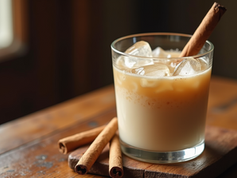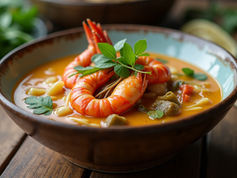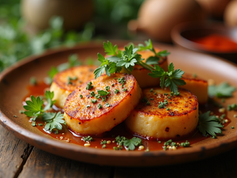Guidelines for Feeding Your Maltipoo Puppy
- Loren
- Aug 3, 2024
- 6 min read
Updated: Aug 27, 2024
Welcome to our detailed guide on nourishing your Maltipoo puppy! Providing the right nutrition is a key responsibility of pet ownership. It's not just about satisfying their appetite; it's about supplying the essential nutrients they need to thrive and enjoy a long, healthy life.
This guide aims to assist you in navigating Maltipoo nutrition, covering their specific dietary needs and tips for creating an appropriate feeding schedule that supports their growth.
Whether you're a first-time Maltipoo owner or an experienced puppy parent seeking fresh insights, this guide aims to equip you with the knowledge necessary to make informed decisions about your Maltipoo's diet. Let’s explore the essentials of feeding Maltipoo puppies together!
Maltipoo Nutritional Needs
Maltipoos, like all puppies, need a balanced diet rich in essential nutrients to support their growth and development. As a delightful crossbreed of a Maltese and a Poodle, Maltipoos possess a unique combination of traits from both breeds, which means their nutritional requirements are a bit special. It’s important to tailor their diet to meet these specific needs for optimal health and well-being.
Protein: Protein serves as the essential building block for your puppy's body, playing a vital role in the development of muscles, tissues, and organs. For your Maltipoo puppy, it's important to select foods that list high-quality animal proteins as the primary ingredient. This will help ensure they grow strong and healthy!
Fats: It's essential to manage the fat content in your Maltipoo's diet, but don't forget that healthy fats play a crucial role in brain development, energy levels, and keeping their coat shiny and healthy. Be sure to choose foods that are rich in omega-3 and omega-6 fatty acids for optimal benefits!
Carbohydrates: Carbohydrates are essential for providing your puppy with the energy they need to play and explore the world around them. However, it's important to note that not all carbohydrates are equal. Whole grains, fruits, and vegetables are fantastic sources of complex carbohydrates and fiber, which not only help keep your puppy satisfied but also support a healthy digestive system.
Vitamins and minerals: Play a vital role in supporting various bodily functions, including bone growth and immune system health. While a balanced diet usually provides these essential nutrients, there are times when supplements may be beneficial to ensure your puppy receives all the necessary support for optimal growth and well-being.
How often should you feed your Maltipoo?
Establishing a consistent feeding schedule is essential for ensuring your Maltipoo puppy remains happy and healthy. Here’s a helpful guideline based on their age:
8-12 weeks: At this stage, puppies should be fed four times a day. Their small stomachs are unable to hold large amounts of food, but they require ample nutrients to support their rapid growth.
3-6 months: As your puppy matures, you can transition to feeding them three times a day. This adjustment helps them adapt to a more adult feeding routine.
6-12 months: Once your puppy reaches six months, you can reduce feedings to twice a day, typically in the morning and evening.
By following this feeding schedule, you'll be setting your Maltipoo up for a healthy and happy life!
How much should I feed My Maltipoo?
2-4 lbs.: 1/3 to 1/2 cup per day
5-8 lbs.: 1/2 to 3/4 cup per day
9-12 lbs.: 3/4 to 1 cup per day
13-16 lbs.: 1 to 1 1/4 cups per day
17-20 lbs.: 1 1/4 to 1 1/2 cups per day
Please keep in mind that these are general guidelines, and the actual feeding amounts for your puppy should be adjusted based on their activity level, age, and overall health. It's also worth noting that different foods have varying caloric densities, so these measurements may not be directly applicable across different brands or types of food. For the most accurate feeding recommendations tailored to your Maltipoo, it's always a good idea to consult with your veterinarian. They can provide personalized advice to meet your puppy's unique needs and help you monitor their growth and weight, ensuring they receive the appropriate amount of food.
Foods to Avoid for Maltipoo Puppies
While understanding the best nutrition for your Maltipoo puppy is crucial, it's equally important to recognize which foods to avoid. Some items that are safe for humans can pose risks or be toxic to dogs. Here is a list of foods you should never offer your Maltipoo puppy:
Chocolate: Chocolate contains theobromine, which can lead to serious health issues in dogs, including heart problems, muscle tremors, and seizures.
Grapes and Raisins: These fruits can be highly toxic to dogs and may cause kidney failure, even in small quantities.
Onions and Garlic: These foods can irritate a dog's gastrointestinal system and potentially damage red blood cells.
Alcohol and Caffeine: Both substances can produce a range of harmful effects in dogs, from intoxication and nervous system disturbances to rapid heart rate, seizures, and in severe cases, death.
Xylitol: This artificial sweetener is commonly found in many sugar-free products, such as gum and candy. However, it can trigger a rapid insulin release in dogs, which may result in hypoglycemia (low blood sugar).
Avocado: While delicious for humans, avocados contain a substance called persin that can lead to vomiting and diarrhea in dogs.
Dairy Products: Some dogs may be lactose intolerant, which means they could experience digestive discomfort after consuming dairy products.
Raw Meat, Eggs, and Bones: Raw meat and eggs can pose a risk of harmful bacteria such as Salmonella or E. coli, which can be dangerous for pets. Additionally, raw bones can present a choking hazard or cause injury to a dog’s digestive system.
High-Sodium Foods: Foods that are high in salt can lead to excessive thirst and urination in dogs, and in severe cases, they may cause sodium ion poisoning.
Please keep in mind that this list is not comprehensive, and there are numerous other foods that may be harmful to dogs. If you're ever uncertain about the safety of a particular food for your Maltipoo, we recommend consulting with your veterinarian before offering it to your puppy. It's also a good idea to keep these foods out of your puppy's reach and to inform all family members about the potential dangers associated with them. This will help ensure the safety and well-being of your beloved Maltipoo.
Conclusion
Proper nutrition for your Maltipoo puppy is one of the most important aspects of their care. By providing the right diet and feeding schedule, along with suitable treats and potential supplements, you can help ensure a lifetime of good health for your furry friend.
Keep in mind that your Maltipoo's nutritional needs will evolve as they grow. Regular veterinary check-ups are crucial to make sure their diet adapts to these changes.
Additionally, it's vital to be aware of foods that can be harmful to dogs and to keep them out of your puppy's reach.
By following these guidelines, you'll be well-equipped to provide the best care for your Maltipoo puppy. Happy feeding!
Frequently Asked Questions
**Q: What causes my dog to have bad breath? **
**A: ** Bad breath in dogs can often be attributed to poor dental hygiene, including tartar buildup and gum disease. However, it can also indicate underlying health issues, such as gastrointestinal problems or metabolic disorders.
**Q: How often should I feed my Maltipoo puppy? **
**A: ** For puppies between 8 and 12 weeks old, it is recommended to feed them four times a day. As they grow, you can gradually reduce their feeding schedule to three times a day from 3 to 6 months, and then to twice a day starting at 6 months.
**Q: Can I give my Maltipoo puppy human food?**
**A:** While some human foods are safe for dogs, many can be harmful. It’s always best to consult your veterinarian before introducing new foods into your puppy's diet. Be sure to avoid toxic foods such as chocolate, grapes, raisins, onions, garlic, alcohol, caffeine, xylitol, avocado, dairy products, raw meat, eggs, bones, and high-sodium foods.
**Q: Why is my Maltipoo puppy not eating?**
**A:** There can be various reasons for your Maltipoo puppy's lack of appetite, such as illness, changes in their environment, or selective eating habits. If your puppy refuses to eat for more than a day, it's important to reach out to your veterinarian for guidance.
**Q: Can I overfeed my Maltipoo puppy?**
**A:** Yes, overfeeding can lead to obesity and other health concerns. It’s crucial to maintain a regular feeding schedule and limit the number of treats you offer. If you’re uncertain about the appropriate amount of food for your puppy, don’t hesitate to consult with your veterinarian.
**Q: When should I switch my Maltipoo from puppy food to adult food?**
**A:** Typically, you should begin transitioning your Maltipoo to adult food when they reach maturity, which is usually around one year of age. However, for tailored advice based on your puppy's specific needs, it’s best to consult with your veterinarian.
**Q: How much water should my Maltipoo puppy drink? **
**A: ** A helpful guideline is that dogs should drink between 1/2 and 1 ounce of water for every pound of body weight each day. Always make sure your Maltipoo has access to fresh, clean water at all times.
Keep in mind that each puppy is one-of-a-kind, and the information provided here serves as general guidance. For personalized advice tailored to your Maltipoo puppy, we always recommend consulting your veterinarian.
Suggested article
























Comments